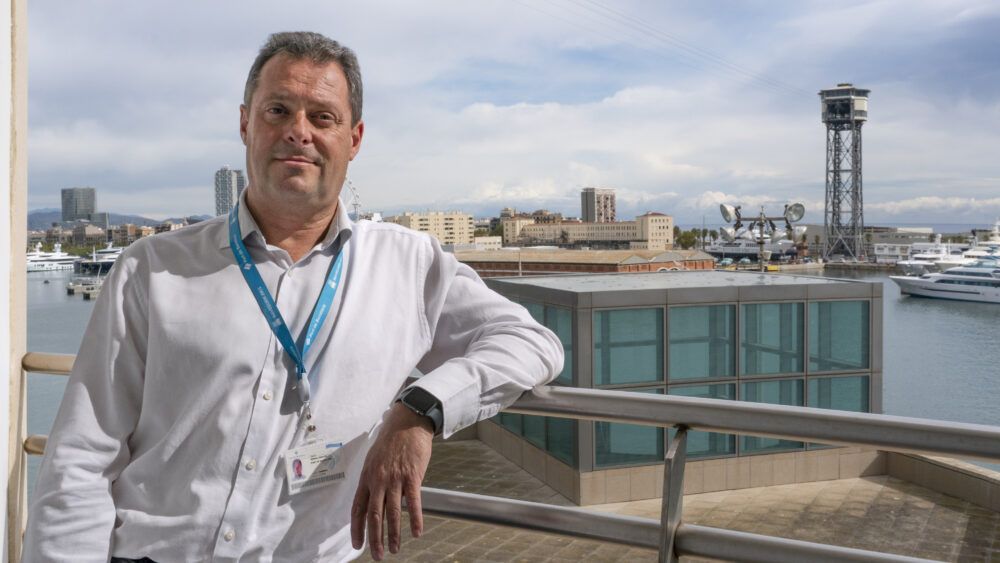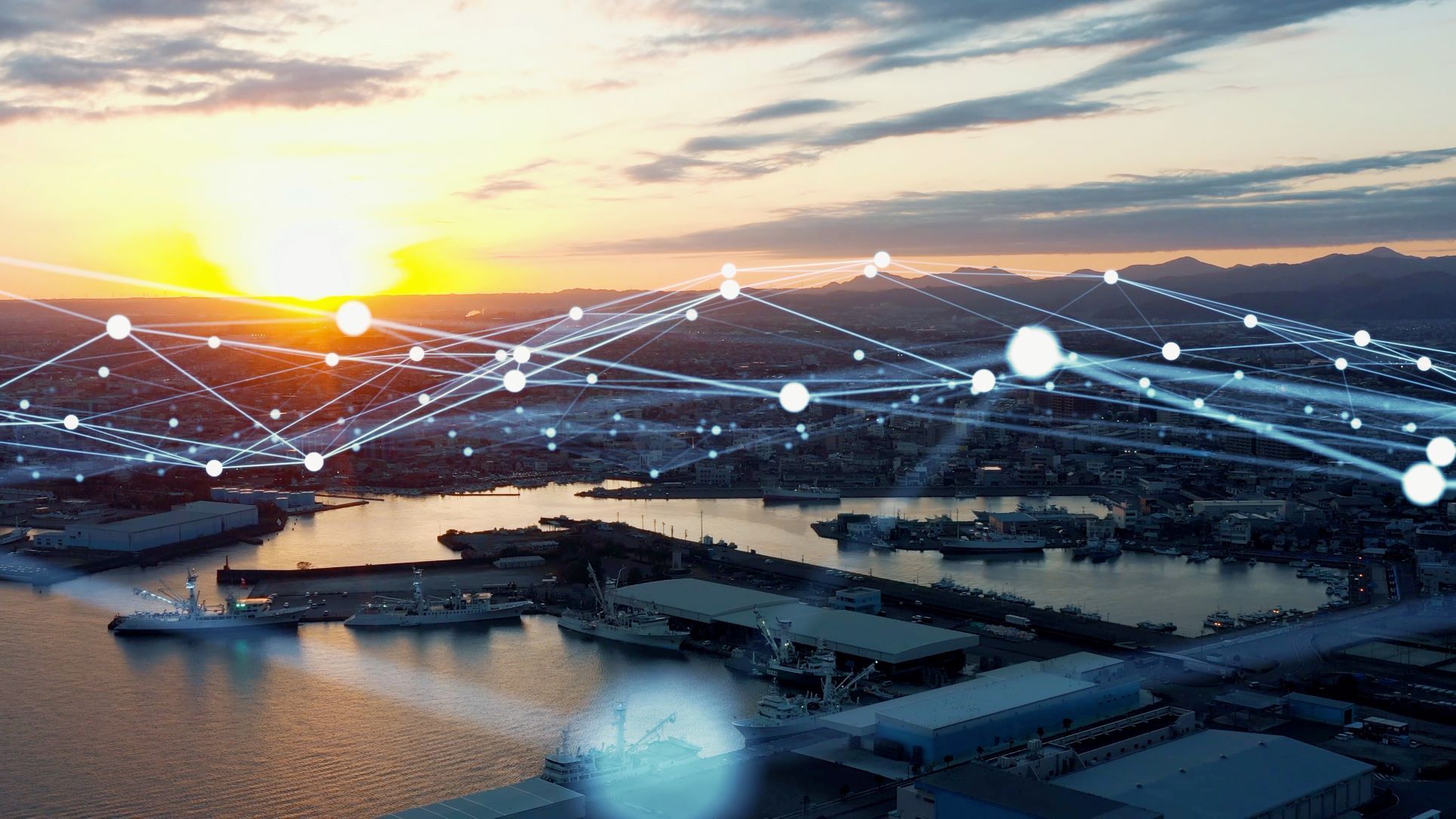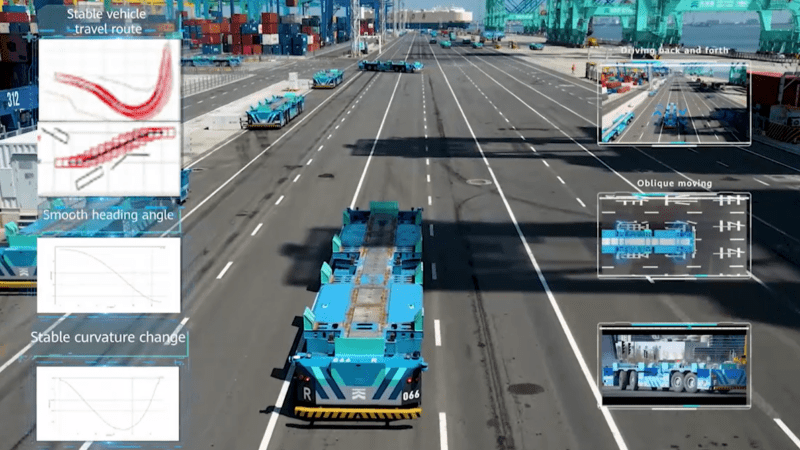 David Serral explains in an interview why the future 5G network will be strategic for the Port of Barcelona (PierNext)
David Serral explains in an interview why the future 5G network will be strategic for the Port of Barcelona (PierNext)
Deploying a 5G network for ports: the experience of the Port of Barcelona
5G will be the great enabler of technologies that will increase the ports' capacity to innovate on several fronts. David Serral, Chief Information Officer, explains, in an interview, the characteristics and operational improvements that the future network will bring to the Port of Barcelona.
 David Serral explains in an interview why the future 5G network will be strategic for the Port of Barcelona (PierNext)
David Serral explains in an interview why the future 5G network will be strategic for the Port of Barcelona (PierNext)
The deployment of the 5G network in ports will take digitalisation one step further. Several ports have already implemented pilots with disruptive technologies enabled by 5G to improve the traceability of shipping routes, analyse data faster or streamline vehicle traffic.
For the Port of Barcelona, one of the main projects of the Telecommunications Plan is the implementation of the 5G network to provide coverage and improve all infrastructures related to the field of communications.
David Serral, Chief Information Officer at the Port of Barcelona, explains that this is a great strategic line, not only for the department he leads, but for the Port as a whole.
What is the status of the project?
Many entities and private companies have started working with small prototypes and proofs of concept in the 5G environment. We believe that now is the time to take a step forward that involves the actual construction of this 5G network as the platform on which to build and develop future projects. We are now in the bidding process and the publication of the tender documents for potential bidders to submit their applications.
When did it start?
About two years ago, with the start of proofs of concept such as Maritime 5G, which is what has brought us this far. Verifying that these pilots work and working with our teams to ensure that there are other use cases for this network.
Which pilots have tested this network?
We have conducted several pilots. One of the most visible is Maritime 5G, a project we presented some time ago. It consists of geolocating ships and tracking them using high-quality images and their location on the map. This has allowed us to see that this type of technology allows us a wide margin for operational improvement.
What lessons have you learned from this pilot?
Above all, it has given us the basis on which to start thinking that this technology can be really useful. From there, we have opened an internal benchmarking, a consultation with all our departments, and we have discovered that there may be use cases related to security, port operations, emergency management, environment or sensor technology. The high-capacity 5G network offers ample possibilities for improvement and solutions.

Could you give some specific examples?
At the security level, the ability to transmit live video in the event of an incident allows our control centre to receive these images in real time from the devices of the port’s police cars, for example.
If we are talking about the environment, it is clear that we have a responsibility and a commitment to do better. One of the aspects to achieve this is to provide the port environment with a large number of sensors capable of sending information in real time and to measure different statuses in a given period of time. In this sense, 5G technology can also bring a lot of value.
What are the characteristics of the Port of Barcelona's future 5G network?
It is a hybrid infrastructure, a network for private and internal use for the port, but with external connectivity. It is not an isolated network.
There are two scenarios within 5G networks. The first one is a completely isolated private network, which is very fast and offers many resources locally, but which nevertheless does not allow access to the outside world or anything in. The second is a virtual private network. Another virtual network is created from the operator's virtual network and allows sharing resources, but it is less agile. The third model is the hybrid model, which is the concept we will adopt in the Port. It is a private network but with the possibility of expanding to the public network.
The Port of Barcelona's 5G network will be the first to be operational in Spain
Where will the network start to be deployed?
In terms of coverage, we are thinking of a 5G network covering the entire port area. Of course, the Port Vell as well, and all the industrial territory and the more than one thousand hectares covered by the Port of Barcelona. In addition, it is planned to provide coverage for two nautical miles for, as I mentioned earlier, projects or operational improvements often located at sea.
What degree of innovation will 5G bring to the Port and its partners?
On a technological level, 5G-based networks have a great capacity to transfer information, they allow the interconnection of multiple elements and sensors. It provides coverage for the entire Internet of Things and, in addition, given the metal casing that we normally have in ports (cranes, containers, ships, etc.), which makes signal transmission difficult, it allows very specific ranges of coverage that would not be possible and which are very interesting for our environment.
Several port authorities are also testing the 5G network. Is the Port of Barcelona's different to other ports?
This is the first time in Spain that a project to generate a sheer 5G network has been put out to tender. Other port authorities have done proof of concept and have set up some networks but we understand that, if it comes to fruition, the Port of Barcelona's 5G network will be the first in Spain to be operational and to be able to provide a series of services that we are pursuing.
When will it be installed and operational?
The idea is that by 2023 we will have this 5G network implemented in at least some areas. Barcelona will host the America's Cup, which will be held in the port, and it is a great challenge for us to ensure that this competition can also benefit from this network.
Will the deployment of 5G be the basis for future generations of telecommunications?
The evolution of technology is really very fast. This makes it very difficult for those of us who are in charge of operating these technologies, such as the Port. Our 5G network will have the peculiarity that it will be scalable within the different steps in the evolution of 5G. The concept is that the network will grow as 5G technology grows. We believe that 6G is still an idea rather than a reality. We have a margin of many years to roll out and exploit 5G.






